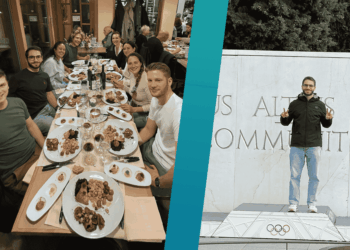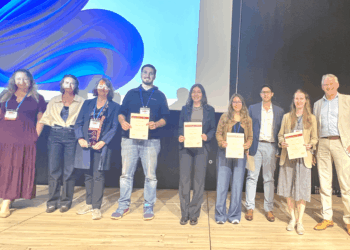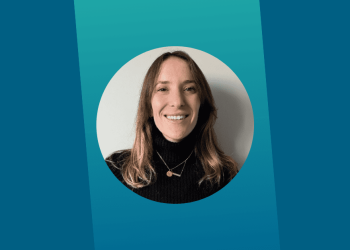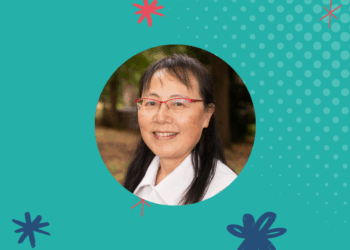Guillermo de la Vega Barranco is a PhD student at the Spanish National Cancer Research Center (CNIO), Spain who received an EACR Travel Fellowship to visit and work at Universität Zürich, Switzerland between May and July 2025.
The EACR, with support from Worldwide Cancer Research, provides Travel Fellowships of up to €3,500 to enable early-career cancer researchers to gain new skills through a short-term visit to a lab or research group in another country.
You can read about other Travel Fellows and their experiences here.
 Name: Guillermo de la Vega Barranco
Name: Guillermo de la Vega Barranco
Job title: PhD student
Home institute: Spanish National Cancer Research Center (CNIO), Spain
Host institute: Universität Zürich, Switzerland
Dates of visit: 01 May – 01 July 2025
Research: My research focuses on a protein called Midkine (MDK), which plays a key role in melanoma and other skin cancers. In melanoma, MDK helps the tumour spread through blood vessels and weakens the immune response. However, in early stages of the disease, MDK might protect against tumour invasion. I am studying how MDK switches from being protective in early stages to promoting tumour growth in advanced melanoma, using advanced imaging techniques to visualise these changes at a cellular level.
Why did you decide to apply for an EACR Travel Fellowship?
I had references from a colleague who applied for this fellowship to do a research stay in Denmark, and he told me very positively about the EACR management. Additionally, I also decided to apply for due to the EACR’s reputation worldwide in the field of cancer research.
Why did you choose the host lab?

I chose the host lab due to the reputation of Prof. Lukas Sommer, a well-known expert in melanoma. What particularly attracted me to his lab was his extensive research on how melanoma cells, in response to targeted therapies and immunotherapies, acquire different states that contribute to increased resistance to therapies. Due to my primary interest in understanding the role of MDK in melanoma, which has been described as interacting in treatment response and resistance, I believe our interests were broadly aligned.
Can you summarise the research you did or what you learned on your visit?
During my visit, I focused on studying the spatio-temporal role of Midkine (MDK) using the Xenium spatial transcriptomics, a cutting-edge technology that emerged in 2022/2023. Due to its novelty, established workflows for this method are still being developed. This is why I did this research stay, to learn from experts who have extensive experience with the technology. Over the course of my stay, I gained a deep understanding of the entire process, from the initial data acquisition to the crucial quality control (QC) steps. I also learned how to use different imaging tools that allow the extraction of detailed biological information from our data. These techniques enabled me to visualise and analyse how MDK’s role evolves across different tumour stages, improving my understanding of its involvement in melanoma progression. The knowledge I gained will be instrumental in applying these advanced methods to my ongoing research, enhancing the insights into MDK’s function in cancer biology.
What were you able to do that you could not have achieved in your home lab?
In my home lab, we do not have bioinformatics experts in managing and understanding the processes behind the new data generated by spatial transcriptomics. Our lab is primarily focused on wet lab work, and while we are expanding our knowledge towards bioinformatics, this transition requires expertise that we currently lack. This is why I needed to collaborate with an expert in this field, who could guide me through the complexities of data analysis and help me understand the various methods and approaches involved. Having access to a specialist allowed me to deepen my understanding of bioinformatics, learn about the latest analytical techniques, and develop a more comprehensive approach to interpret spatial transcriptomics data. Without this expertise, it would have been difficult to manage the potential and challenges of these innovative techniques and apply them effectively to my research.
What was a personal highlight of your trip?
A personal highlight of my trip was applying for presenting my work at the Students-on-Stage event, organised by the Functional Genomics Centre in Zurich. The idea of this conference was to present our PhD works, with a focus on omics technologies applied to various fields of science. It was a very enriching experience, where I had the opportunity to learn about interesting projects and how bioinformatics was being applied to them, make new connections and receiving insightful feedback that has inspired me to ask new questions and delve deeper into my research. On a more personal level, it also helped me overcome my “fear” of presenting my project in front of such a large and international audience. This experience gave me confidence in my ability to communicate my work to a broader scientific community.

Have you brought back any specific knowledge or technique that has benefited your home lab?
I have brought back knowledge about spatial transcriptomics, a relatively new technology that allows us to gain a much deeper understanding of gene expression profiles with spatial resolution at the tissue level. With this, I aim to establish a pipeline or workflow to analyse this technology in my home lab, using the most up-to-date and robust methods available. Additionally, the knowledge gained from this experience has enhanced our understanding of the role of MDK in primary and metastatic melanoma.
How has this visit been beneficial to your research and your career?
This visit has been extremely beneficial to my research, as it has provided me with new insights into how our protein of interest, MDK, interacts with the tumour microenvironment at different stages of melanoma. This will improve my thesis and potentially lead to the publication of relevant advances in the field of melanoma. On a career level, I have learnt valuable knowledge in data analysis, which will be crucial for the future direction of my career in data science and computational biology. This experience will support my ability to contribute to advancements in these areas.
Want to find out more?
If you are interested in applying for the Travel Fellowship scheme, please click here for more information: EACR Travel Fellowships.










